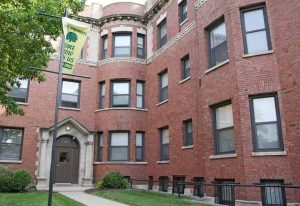
The Ordinance
What does this Ordinance do?
The Northwest Side Preservation Ordinance is focused on “protecting naturally occurring affordable housing” (NOAH) in several neighborhoods (largely Logan Square and Avondale) on the northwest side of Chicago.
But its central provision, which offers renters a right of first refusal on the sale of their building, is devastating to NOAH. The ordinance makes it harder to sell a building, and that depresses the value of the building. Owners will have to make up that loss of value with increased rents.
Naturally Occurring Affordable Housing (NOAH) is private sector, market-rate housing, and it accounts for 70 percent of all affordable housing. It’s usually provided by small, family businesses who are more likely to be people of color. And this ordinance punishes the people who provide NOAH.
Here’s how the ordinance works.
- Owners have to give their tenants advance notice of their intention to sell the building: up to 60 days (depending on the number of units in the building) in the case of a six-flat or larger building.
- If an offer is accepted, the tenants have up to 90 days to decide whether or not they are interested in buying the building.
- If they do want to buy it, they have an additional period of time (from 60–270 days) to match the offer.
This complicated process makes it harder to sell a building, which makes it harder to finance affordable housing. This ordinance will drive out small, local owners, replacing them with cash-rich, out-of-town corporate owners.
By making it harder to invest in NOAH, it will make affordable housing scarce. Scarcity leads to increased rents.
Press and Articles
How Did This Become a Law?
The Northwest Side Preservation Ordinance was passed through committee on September 16, 2024, and sent to full Council where it was approved on September 18, 2024.
At the time, the Council was deeply preoccupied by budget issues and the controversial ShotSpotter program. Sponsors Alds. Ramirez-Rosa, La Spata, Fuentes, Sigcho-Lopez and Cruz assured their colleagues that this measure was a small matter of Aldermanic Prerogative, and that it had been agreed to by everyone in the community, including the housing industry.
It had not been shared with the NBOA or any of its fellow industry groups. No local providers of Naturally Occurring Affordable Housing had been given the chance to review or weigh in on the practicality and effectiveness of this measure.
The NBOA and its colleagues at Chicago Area Realtors (CAR) signed up to speak in opposition to this ordinance but were not selected to speak. There was no time to mount an adequate campaign to fight the measure and it passed full council two days after it was approved in committee. The City Council has since amended it. The most important change they made was to include a sunset date (on 12/31/29), and to delay enforcement until 3/1/25. Although industry leaders were present, they were not given a chance to publicly voice their many concerns.
It passed full council two days after it was approved in committee. The City Council has since amended it. The most important change they made was to include a sunset date (on 12/31/29), and to delay enforcement until 3/1/25.
Since then, the NBOA has led the fight against this measure, along with our colleagues at the Realtors. We generated and began our campaign of educating the housing industry and the local community on the ramifications of this ill-advised ordinance, which includes and will include:
- Editorials against the measure and other media coverage
- Social media
- This website
- Continued consideration of legal remedies
- Direct outreach to owners and brokers in the area
Map
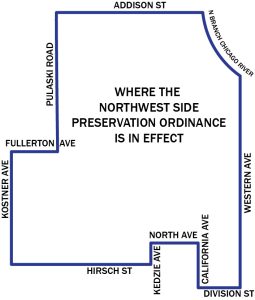
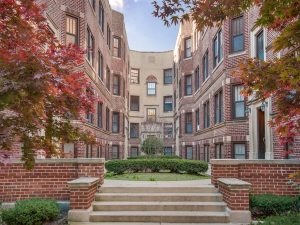
For Building Owners
How Do I Comply?
This is a complicated ordinance, and there are still many questions.
Here are the basics:
You’ll have to give your tenants advance notice of your intention to sell the building. The amount of time you have to give them before listing your building depends on the number of units in your building. In the case of a five-flat or larger building it’s 60 days; if it’s four or fewer units, it is 30 days.
- If your tenants request it, you need to give them:
- the most recent rent roll, including each unit number and the monthly rent charged for each unit;
- a list of vacant apartments, and a statement of the rental property’s vacancy rate during the preceding 12 months;
- the income and expense report for the 12-month period prior to the notice, including capital improvements, real property taxes and other municipal charges; and
- any other information the Commissioner may specify by rule.
- You have 30 calendar days from receipt of such request to furnish the info.
If an offer is accepted, the tenants have time to decide whether or not they are interested in buying the building.
- If the building has five or more units, they have 90 days to:
- form a tenant association,
- inform you and the Department of Housing of that new tenant association, and
- to provide to you and the Department their names, addresses,
- and telephone numbers
- If the building has three or four units, they have 30 days to form and provide that information.
- If you’re selling a single-family home or a condo, they have 15 days to tell you and the Department.
They need 75% of their units to agree in order to trigger all these requirements.
- If you get waivers from half of them indicating that they waive their right of purchase, then you can proceed with your sale.
If they do want to buy it, they have an additional period of time (from 60–270 days) to match the offer.
Here’s additional information from Rich Magnone, of Reda | Ciprian | Magnone, LLC. He can be reached at rmagnone@rcmlaw.com or 773-399-1122.
Consequences If You Don’t Comply
A building owner’s failure to comply with any portion of the ordinance requirements can result in significant penalties.
Owners of residential rental properties who want to sell a building located within the “Predominance of the Block District” must provide various notices to tenants and the Chicago Department of Buildings prior to listing the real estate for sale and must provide tenants with a right of first refusal upon executing a contract for sale. In addition, tenants may only be evicted for “just cause,” meaning a landlord cannot terminate the tenancy merely because a lease is coming to an end. Instead, there must be a serious violation of the lease.
The ordinance provides at Section 5-11-150 that any person who violates any aspect of the ordinance shall be fined an amount not less than $200 and not more than $1000 for each offense. As is common in Chicago, the City will consider each day a violation continues to be a separate and distinct offense. That means a building owner who fails to comply with the notification requirements and right of first refusal procedures could face fines of up to $1000 per day from the City of Chicago.
In addition to governmental enforcement, at Section 5-11-160, the ordinance creates a private cause of action for “any aggrieved person” (i.e., a tenant association or an individual tenant) in addition to the City’s enforcement. This means that an aggrieved person can sue a property owner in a civil action. In such a case, a court is authorized to award a prevailing aggrieved party with injunctive relief or a money award of triple damages plus court costs and attorney’s fees.
The Chicago and private causes of action are cumulative and not mutually exclusive, so a property owner could be pursued by the city, a tenant association and one or more individual tenants all at the same time.
Disclaimer: This page does not offer legal advice: you should consult a qualified real estate attorney. Even lenders and title companies are still learning about this ordinance, so proceed with caution.
Share Your Experience
Are you a building owner affected by this Ordinance? Please share your experience and/or opinions with us! Click here to share your experience about the Ordinance.

The DC Experience
The Tenant Opportunity To Purchase Act
Since 1980 Washington DC has had the Tenant Opportunity to Purchase Act (TOPA), which creates tenants’ rights to organize to purchase their building or to sell their rights to purchase the building prior to the owner being allowed to complete a sale to a third-party purchaser.
Because sales under this measure are so extremely time-consuming and expensive, it is much harder to attract investors and lenders to fund the construction of new rental housing or to rehabilitate existing rental housing. This is because of the uncertainty TOPA creates for investors in timing the later sale of the rental housing or ensuring the timely return of their capital through recapitalization, because in many recapitalizations, TOPA is also triggered. Lenders are also concerned because if a property owner/borrower needs to sell their property in order to repay the debt, the maturity date may be missed because of the delays TOPA imposes. There have been a number of foreclosures resulting from missing the maturity date to repay the debt because of TOPA delays. There has also been a number of owners forced to sell at a considerable loss simply to pay off the debt before foreclosure.
Prior to an owner being able to complete the sale of their rented property, the tenants have to receive by certified mail a government-prescribed offer of sale form with all material terms disclosed. The customary practice is to attach the third-party sales contract to the offer of sale to avoid claims that certain material terms were not disclosed. This results in every tenant receiving and potentially sharing the otherwise confidential third-party contract with anyone they wish, including posting on the internet. The offer of sale also has to be posted onsite in conspicuous locations in the common areas. The Mayor, acting through the Department of Housing and Community Development, also has a secondary right to purchase the property, and the offer of sale is delivered to the agency and posted on its website as a public record.
The offer of sale gives the tenants 45 days to organize a tenant association, and if organized, the tenant association has 120 days to negotiate to purchase and another 15 days to match the material terms of the owner’s sales contract with its purchaser. If the tenant association is successful, it then has 120 days to close and is entitled to up to a second 120 days to close if its financing source provides a letter that more time is needed to close. The total statutory timeline can reach 420 days (although the timeline is shorter for 4-unit, 2-unit and 1-unit rental property).
In most instances, the tenants organize a tenant association, threaten to delay the owner’s sale and to sell their TOPA purchase rights to another party, and seek substantial concessions. Most often these concessions are cash payments in either a lump sum or through rent abatements, as well as seeking to cap rent increases for a certain period of time. In instances where the tenants do not organize or organize but do not proceed, the tenants have a later 15-day right of first refusal if the pending sale has material changes or a new purchaser is substituted and there are material changes.
The severe financial consequences this has caused to owners of single-family homes led to new legislation which exempts single-family homes, including condominium units, from the purchase right under TOPA. The tenant still retains the right to continue their tenancy after the sale to a third-party.
Currently, mid- and large-cap institutional and non-institutional investors are seeking to flee the District, in part due to TOPA, rent control, slow and ineffective tenants eviction procedures, excessive real property taxation, and other regulatory burdens.
Another indication of the impact of this measure is the slower pace of transactions in the District compared to neighboring Northern Virginia and Suburban Maryland. On a proportional comparative basis, the sale of DC apartment projects trade approximately one-third the frequency of those in these other communities, and the sales of DC apartments have compressed values compared to comparable apartments in those other communities. This impacts tax revenue, causes properties to miss refinancing deadlines and investor redemption deadlines, and generally constrains investment in rental housing.
Finally, there is no clear remedy for a violation under DC’s TOPA if the claim is brought after closing (there is a 3-year statute of limitations to do so). The title industry in DC has been skittish for decades because of the ambiguities and uncertainties under TOPA, and the potential for litigation related to the ordinance.
The severe consequences of TOPA have led to two recent amendments. The one noted above exempts single family homes from the tenant’s right to purchase, and the other is an exemption to recapitalize and replace a low-income housing tax credit investor after the initial 15-year rental restriction. Very recently, the Mayor introduced legislation to address a multitude of these issues. The apartment development and ownership communities are supporting this new legislation.
Jeff Gelman, a real estate partner in Saul Ewing LLP’s DC office, contributed to this article. Jeff has been practicing finance, development and regulatory compliance law for real estate projects for the past 40 years, and has been handling transactions subject to TOPA since 1986.
Jeff can be reached at jeffrey.gelman@saul.com, or at (202) 295-6647.
One Housing Provider's Story
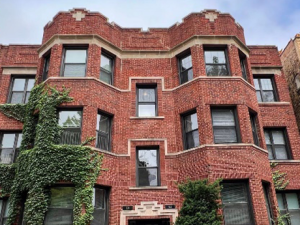
Take Action
Fight This Ordinance
Contacts and Advocacy Resources
Share The Message
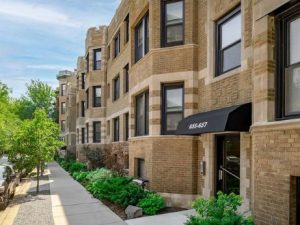
FAQ’s
Frequently Asked Questions
Q Who is responsible for this ordinance?
The Northwest Side Housing Preservation Ordinance was sponsored by Alderpeople Carlos Ramirez-Rosa (Ward 35), Daniel La Spata (Ward 1), Byron Sigcho-Lopez (25), Jessie Fuentes (Ward 26), Ruth Cruz (Ward 30), Felix Cardona (Ward 31), and Rossana Rodriguez-Sanchez (Ward 33).
Q Who does it affect?
Neighborhoods such as Avondale, Hermosa, Humboldt Park, Logan Square, West Town, and the Lower West Side.
The ordinance expands the current boundaries of the Predominance of the Block around the 606 Trail to protect housing and residents in the area bounded by Addison Street, the North Branch of the Chicago River, Western Avenue, Division Street, California Avenue, North Avenue, Kedzie Avenue, Hirsch Street, Kostner Avenue, Fullerton Avenue, and Pulaski Road.
Q What will the Northwest Side Housing Preservation Ordinance do?
The Northwest Side Housing Preservation Ordinance will give renters a right of first refusal on the sale of their building. This punishes the owners of most affordable housing, makes it harder to invest in neighborhood housing, and devalues buildings and homes with rental space (including condos that are rented).
It will lead to scarcer housing and higher rents.
It also increases the demolition fee.
Q How exactly does it work?
This ordinance establishes a tenant right of first refusal provision that requires owners of rental buildings to provide advanced notice to tenants if they intend to sell the building. This means that the tenants in a rental building have the right to match any offer made by a third party to purchase the rental building they live in
Q How will the Tenant Opportunity to Purchase (Right of First Refusal) work?
It depends on the number of units in the building.
For buildings with one or two units:
- The owner must give tenants 30 days notice of their intent to sell before listing the property for sale.
- Following the 30-day notice period, the owner must notify tenants of any third-party offers they receive that they intend to accept.
- Tenants have 15 days from receipt of notice of a third-party offer to exercise their right of first refusal by notifying the owner in writing of their intention to match the third-party offer.
- An offer to purchase can be made by one tenant; the formation of a tenant association is not necessary.
- If the offer is accepted, the tenant(s) have 60 days to secure financing and complete the closing process.
For buildings with three or four units:
- The owner must give tenants 30 days notice of their intent to sell before listing the property for sale.
- Following the 30-day notice period, the owner must notify tenants of any third-party offers they receive that they intend to accept.
- Tenants have 30 days from receipt of notice of a third-party offer to exercise their right of first refusal by notifying the owner in writing of their intention to match the third-party offer.
- The tenants’ offer to purchase must be made collectively by 51% or more of the current tenants in non-owner-occupied units.
- If the offer is accepted, tenants have 60 days to secure financing and complete the closing process.
For buildings with five units or more:
- The owner must provide 60 days notice to tenants of intent to sell before listing the property.
- Once the property is listed for sale, the owner must provide notice of any offer they receive and intend to accept to the tenant association or, if none exists, to each tenant.
- After receiving this notice, tenants have 90 days to form a tenant association and exercise their right of first refusal by giving the owner written notice of their intent to match the third-party offer received.
- The tenants’ offer to purchase must come from a tenant association representing residents of at least 75% of occupied units.
- The tenant association has 120 days after providing the owner with notice of intent to exercise their right of first refusal to secure financing and complete the closing process.
Q Are there exceptions to the Tenant Opportunity to Purchase?
Yes. There are exceptions in the ordinance that allow a property owner to transfer ownership of their property without triggering the tenant right of first refusal:
- When ownership is transferred to a close relative (e.g., a spouse, domestic partner, parent, sibling, grandparent, aunt, uncle, niece, etc.);
- A transfer made in connection with any bankruptcy proceeding, tax sale, or tax foreclosure;
- A transfer pursuant to a court order or court-approved settlement;
- A transfer by eminent domain;
- A transfer directly caused by a change in the form of entity owning the rental property;
- A transfer of ownership into a trust.
Q What is naturally occurring affordable housing?
The term naturally occurring affordable housing refers to housing that is affordable without receiving any government subsidy and without any legal restriction on what the owner can charge in rent. Naturally occurring affordable housing makes up the majority of the affordable housing in the Northwest side neighborhoods included in this ordinance. In these neighborhoods, naturally occurring affordable housing is found in classic Chicago neighborhood buildings like the family-owned two-flats, three-flats, and four-flats, basement and attic apartments, mid-rise apartment buildings and courtyard buildings.
This ordinance will make it more difficult to sell or purchase these buildings, discouraging investment in naturally occurring affordable housing. This will make rental housing harder to invest in, harder to provide, and more scarce. It will lead to higher rents.
Q What about 1031 exchange sales?
These become almost impossible. The tight timetables required to identify and close transactions can’t be met once residents are notified and given time to exercise their right of first refusal.
Q What concerns might lenders and title companies have about transactions in this district? About compliance?
There is a lot of uncertainty about this measure. Many lenders and title companies will be hesitant to support transactions subject to the provisions of this ordinance.
Q How does the tenant assignment of right to purchase work?
Here’s an answer from James A. Erwin, of Erwin Law, LLC
www.erwinlawfirm.com
If a tenant wants to assign their right of first refusal to a third party (not a tenant association), they can give you a written notice letting you know who they assigned their rights to. That notice is supposed to be given to you within ten days after they make the agreement with the third party.
The right to assign their rights could impact your sale in the following ways (among others):
• For example, if you have a fully occupied 6-flat, then at least 5 of the 6 apartments need to sign off on the formation of a tenant association to represent them. But if two of those tenants say they have assigned their rights to a third party, you might have a difficult time knowing whether those two tenants or the third party needs to sign the tenant association form. This could put you in the middle of an argument between the tenant association and the third party, which could further delay the timeline in selling your building.
• The right of tenants to assign their interests to any third party means that you may also have to share your financial data with dozens of parties, even if they never wind up buying your property.
• Also, because this law strictly limits what you can demand in terms of proof of financial resources, you will have almost no ability to control who gets to see your private financial data.
• This invites abuse. Anybody who wants to see your financial data could offer one of your tenants $100 to “assign” their right to them. Now that third party stands in the shoes of your tenant and can demand to see all the information for your building. And there is nothing that prevents a tenant from “reselling” their rights numerous times because there is nothing in the law which states that a tenant may only assign their right one time. All they need to do is provide you with a document signed by the original assignee saying the original assignment has been terminated and then the tenant is free to assign to another third party.
• And you will no longer be able to sell your building to any buyer that wants to do a 1031 exchange into the building, nor will you be able to consider using your sale proceeds in a 1031 exchange because the timelines for this ordinance exceed the timelines for 1031 exchanges.
Q What obligations does the seller have when notifying tenants of their intent to list their building?
- If your tenants request it, you need to give them:
- the most recent rent roll, including each unit number and the monthly rent charged for each unit;
- a list of vacant apartments, and a statement of the rental property’s vacancy rate during the preceding 12 months;
- the income and expense report for the 12-month period prior to the notice, including capital improvements, real property taxes and other municipal charges; and
- any other information the Commissioner may specify by rule.
- You have 30 calendar days from receipt of such request to furnish the info.
Q How does this ordinance impact someone who needs an expedited sale?
There are no provisions for an expedited sale. The timelines cannot be waived.
Q Is this ordinance even legal?
That’s still an open question. There are groups looking into this, but so far there is no litigation. (I may try and provide a better answer.)
Q What are some of the unintended consequences of this ordinance?
- Housing becomes more expensive
- Owners get less value when selling
- All rents get equalized, penalizing long-time favored tenants
- Extortion and deal-making may drive up cost of selling the building
Ask us a question! We have experts who can help find the answer. info@nboaChicago.com
Disclaimer: This page does not offer legal advice: you should consult a qualified real estate attorney. Even lenders and title companies are still learning about this ordinance, so proceed with caution.
Please fill out the form with a Chicago-based address to quickly email City Council. Click “Customize Email” above the submit button and then type in the email body to add your own personal story to the letter.
Do you own multiple buildings in Chicago? Fill out the form again with the buildings’ address to contact the appropriate Alderman.
